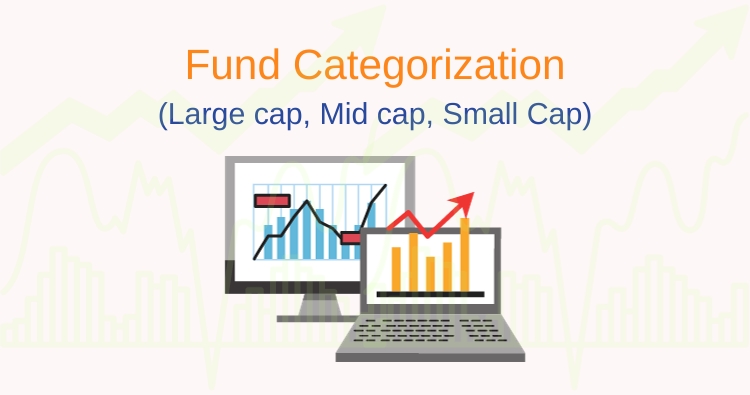




Explore the World of Mutual Fund Categories: A Deep Dive into Large, Mid, and Small-Cap Funds
This comprehensive guide will demystify the essential categories of mutual funds—large, mid, and small-cap funds—so that you can make informed investment choices tailored to the Indian market.
Introduction on Mutual Funds
Before we dive into the specifics of these categories, let's ensure we're all on the same page about what mutual funds are.
Mutual funds are investment vehicles that pool the money of several investors to purchase a diverse range of securities, such as stocks and bonds. These funds are managed by professionals who strategically invest to maximize returns and minimize risks.
Key Terminology
Understanding mutual funds requires familiarity with certain financial terms:
An Insight into Large-Cap Funds
A Large Cap Fund is a type of mutual fund that primarily focuses on large cap stocks, with a minimum requirement of at least 80% of its total investments allocated to such stocks.
Large-cap funds primarily invest in well-established companies with a long track record of stability. Think of names like Reliance Industries, Tata Consultancy Services, and HDFC Bank. These companies are well-equipped to navigate economic fluctuations and offer steady, although slower, growth. Investors can expect more predictable performance from these funds. Large-cap funds tend to have lower volatility compared to small and mid-cap funds.
Navigating Mid-Cap Funds
A Mid Cap Fund is a category of mutual fund that predominantly invests in mid-cap stocks, with a requirement of at least 65% of its assets dedicated to this category.
Mid-cap funds strike a balance between risk and reward. Fund managers invest in medium-sized companies that have outgrown the small-cap category but are yet to reach large-cap status. With these funds, you're betting on potential future growth. Mid-cap funds have the potential for higher growth than large-cap funds. They are less volatile compared to small-cap funds, making them a stable option for investors.
Journeying Through Small-Cap Funds
A Small Cap Fund is a type of mutual fund that primarily concentrates its investments in small-cap stocks, with a minimum allocation of at least 65% of its total assets to this category.
For adventurous investors, small-cap funds may hold great appeal. These funds invest in small, promising companies with significant growth potential. Small-cap funds offer the potential for high returns, making them attractive to risk-tolerant investors. They provide untapped growth potential as these companies are often off the radar of large institutional investors.
Here's a valuable piece of advice: Diversification is crucial in any investment strategy. Never put all your funds into a single category.
Conclusion
While investing isn't one-size-fits-all, understanding large, mid, and small-cap funds can significantly impact your financial journey. It's important to note that there's no "best" category—each one offers unique opportunities.
The real secret is aligning your choice with your financial goals, risk tolerance, and investment horizon.
So, are you ready to navigate the intricacies of mutual funds with confidence? The world of finance may appear complex, but with a bit of knowledge, you too can unlock the door to wise investments!
Happy investing!
Mutual Fund investments are subject to market risks, read all scheme related documents carefully.
SJ Financial Services
2A/5 BP NIT Faridabad,
Opposite HDFC Bank
Haryana-121001.
+91 9717025085
Copyright © SJ Financial Services. All rights reserved.
Disclaimer | Commission Disclosure | Complaints Records | Code of Conduct | Useful link
Risk Factors – Investments in Mutual Funds are subject to Market Risks. Read all scheme related documents carefully before investing. Mutual Fund Schemes do not assure or guarantee any returns. Past performances of any Mutual Fund Scheme may or may not be sustained in future. There is no guarantee that the investment objective of any suggested scheme shall be achieved. All existing and prospective investors are advised to check and evaluate the Exit loads and other cost structure (TER) applicable at the time of making the investment before finalizing on any investment decision for Mutual Funds schemes. We deal in Regular Plans only for Mutual Fund Schemes and earn a Trailing Commission on client investments. Disclosure For Commission earnings is made to clients at the time of investments. Option of Direct Plan for every Mutual Fund Scheme is available to investors offering advantage of lower expense ratio. We are not entitled to earn any commission on Direct plans. Hence we do not deal in Direct Plans.
AMFI Registered Mutual Fund Distributor – ARN-101144 | Date of initial registration ARN – 18-02-2024 | Current validity of ARN – 17-02-2027
Privacy Policy | SID/SAI/KIM | SEBI Circulars | AMFI Risk Factors